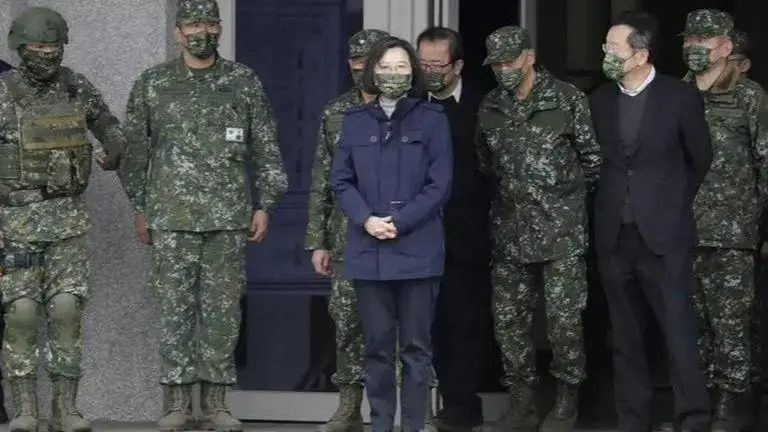Updated 6 January 2023 at 14:36 IST
Taiwan to develop satellite similar to Starlink to defend itself against China: Report
The project, which is being overseen by the country's space agency, TASA, is intended to fortify Taiwan against potential attacks from China.
- World News
- 3 min read

Taiwan, with the threat of China in mind, is seeking investors to fund the development of its own satellite communications provider, according to a report from the Financial Times. The project, which is being overseen by the country's space agency, TASA, is intended to fortify Taiwan against potential attacks from China and build communications infrastructure that could withstand such an assault. As part of the project, TASA plans to spin off an existing satellite division into a separate company, in which the Taiwanese government intends to retain a significant minority stake.
TASA's plans for a satellite communications provider has been inspired by the role played by SpaceX's Starlink constellation in the war in Ukraine. Starlink has helped Kyiv maintain communications with its forces despite Russian attacks on Ukrainian infrastructure. "We look at the Russian invasion of Ukraine and how Starlink has been used very successfully," said Audrey Tang, Taiwan's digital minister, as per the report.
What's the goal?
TASA wants to develop Low-Earth orbit (LEO) satellite communications system, in order to support societal resilience and facilitate the transmission of videos and teleconferencing during disasters. LEO satellites fly much closer to the ground than geostationary ones and can drastically reduce delays in data transmission because the signal does not have to travel as far. However, stable telecommunications services require large constellations of LEO satellites because they move around in orbit.
What is the roadmap?
TASA has approached several domestic and international investors to fund the project, including Silicon Valley venture capital firm Draper Associates, which was an early investor in SpaceX and Tesla. While industry insiders are reportedly sceptical about the prospects of a Taiwanese state-backed LEO company competing in a global market dominated by SpaceX and numerous start-ups, other sources suggest the non-geostationary satellite market is approaching a pivotal moment that could allow smaller countries to operate their own constellations. "Those include Japan, Korea, Australia. And Taiwan is interested in being one of them," said Cheng Wu to FT. Wu is a general partner at Taiwania, a government-backed venture capital firm.
Advertisement
In the meantime, TASA is experimenting with non-geostationary satellite receivers in 700 locations around Taiwan in order to guarantee bandwidth in the event of war or disasters. The agency is also working with Taiwanese start-ups to develop satellite-based internet of things applications. While TASA has not publicly commented on the progress of the project, Audrey Tang has said it will take "a few years" for the planned service to start operating.
Published By : Sagar Kar
Published On: 6 January 2023 at 14:36 IST
